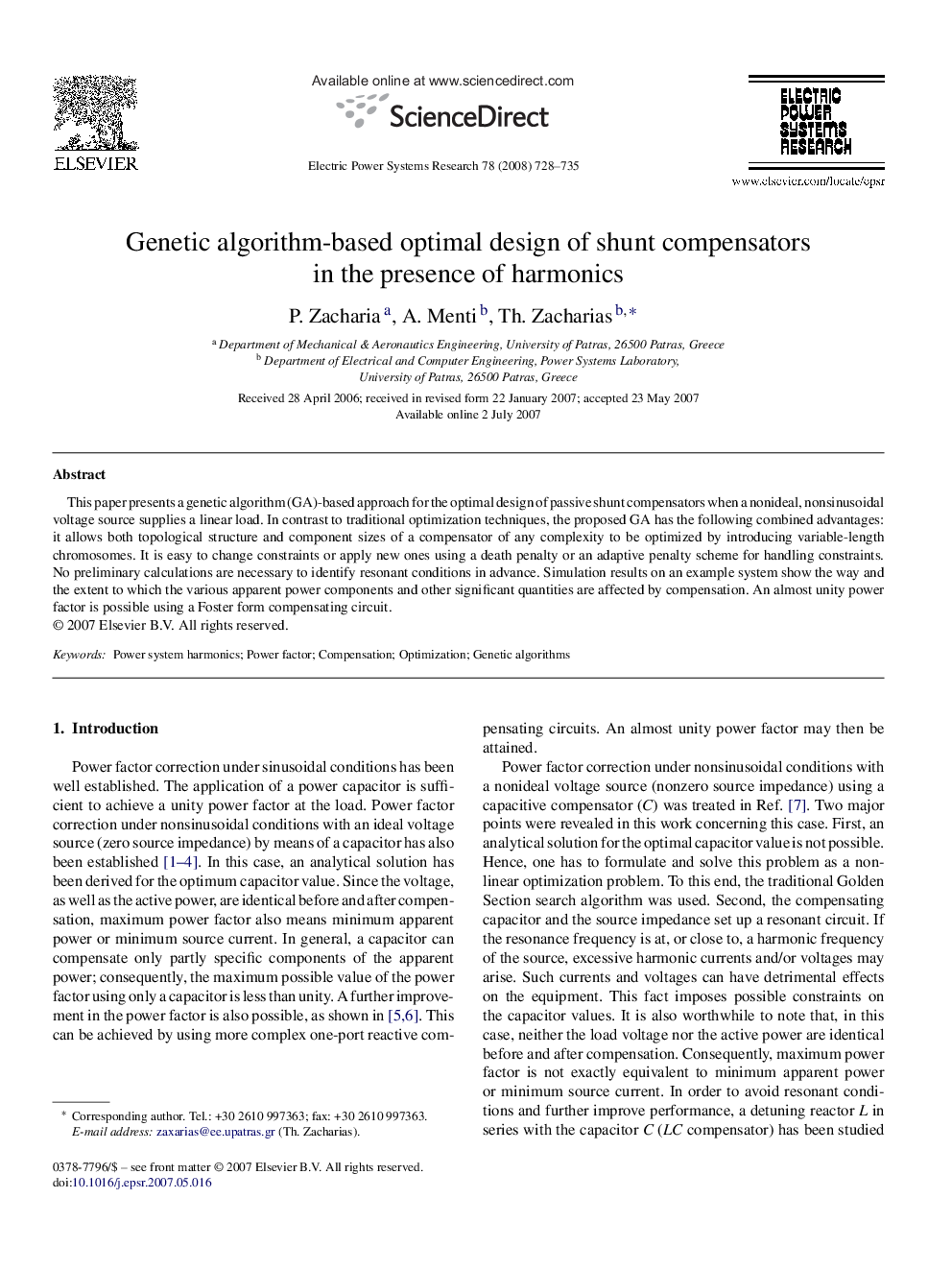| Article ID | Journal | Published Year | Pages | File Type |
|---|---|---|---|---|
| 705957 | Electric Power Systems Research | 2008 | 8 Pages |
This paper presents a genetic algorithm (GA)-based approach for the optimal design of passive shunt compensators when a nonideal, nonsinusoidal voltage source supplies a linear load. In contrast to traditional optimization techniques, the proposed GA has the following combined advantages: it allows both topological structure and component sizes of a compensator of any complexity to be optimized by introducing variable-length chromosomes. It is easy to change constraints or apply new ones using a death penalty or an adaptive penalty scheme for handling constraints. No preliminary calculations are necessary to identify resonant conditions in advance. Simulation results on an example system show the way and the extent to which the various apparent power components and other significant quantities are affected by compensation. An almost unity power factor is possible using a Foster form compensating circuit.
